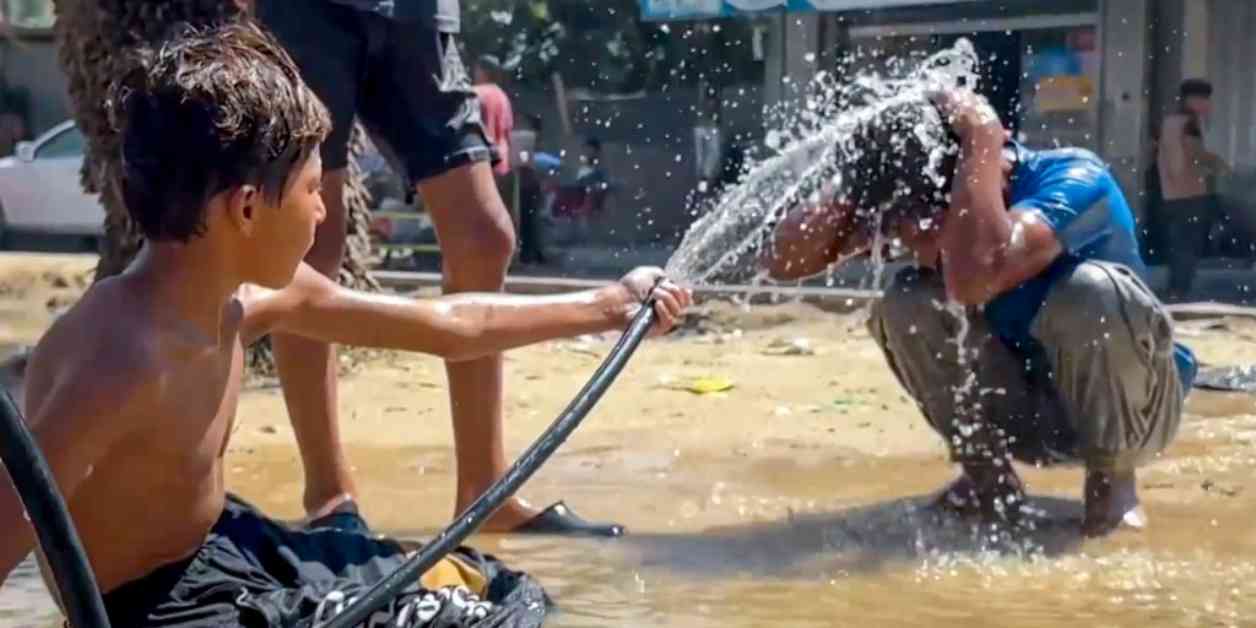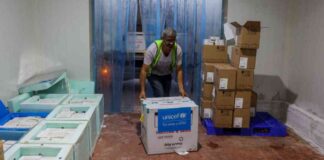Sobhia, a 7-month-old infant in Gaza, developed a painful rash on her skin due to bacteria from polluted water, according to doctors. She is just one of many children in the region who are experiencing health issues from using contaminated water for drinking and bathing. The ongoing conflict in Gaza has severely damaged the water infrastructure, leaving residents with limited access to clean and safe water sources.
Samar Hamoda, Sobhia’s mother, shared her family’s struggles after being forced to flee their home in northern Gaza to seek refuge in a temporary evacuation zone in Khan Younis. The conditions in the new location are even worse, with no clean water available for basic hygiene and healthcare services out of reach due to financial constraints.
Gaza heavily relies on wells and desalination plants for its water supply, but much of this infrastructure has been destroyed during the conflict. Organizations like Oxfam International have reported that a significant portion of Gaza’s water facilities, including desalination plants and wells, have been damaged or rendered inoperable. The lack of access to clean water has led to a drastic reduction in available water resources, with residents receiving only a fraction of the recommended daily amount.
Efforts to address the sanitation crisis in Gaza have been hindered by limited access for humanitarian groups. Despite initiatives to repair infrastructure and provide clean water, residents continue to face the dire consequences of using contaminated water sources. The prevalence of waterborne diseases like hepatitis A has increased significantly, with cases of liver failure and other complications being reported in hospitals.
The United Nations and other international organizations are working to restore access to clean water in Gaza by repairing damaged desalination plants and wells. However, the threat of waterborne illnesses persists, with recent reports of the polio virus detected in wastewater samples. The WHO is planning a large-scale vaccination campaign to prevent the spread of polio in the region, but challenges remain in ensuring adequate vaccine storage and distribution.
As residents in Gaza continue to grapple with the health risks associated with contaminated water, the need for urgent intervention and sustained support from the international community is evident. The ongoing conflict has exacerbated an already dire humanitarian crisis, with vulnerable populations, especially children, bearing the brunt of the water-related health challenges. Efforts to address the water crisis in Gaza must be prioritized to prevent further suffering and mitigate the risk of widespread disease outbreaks.


















